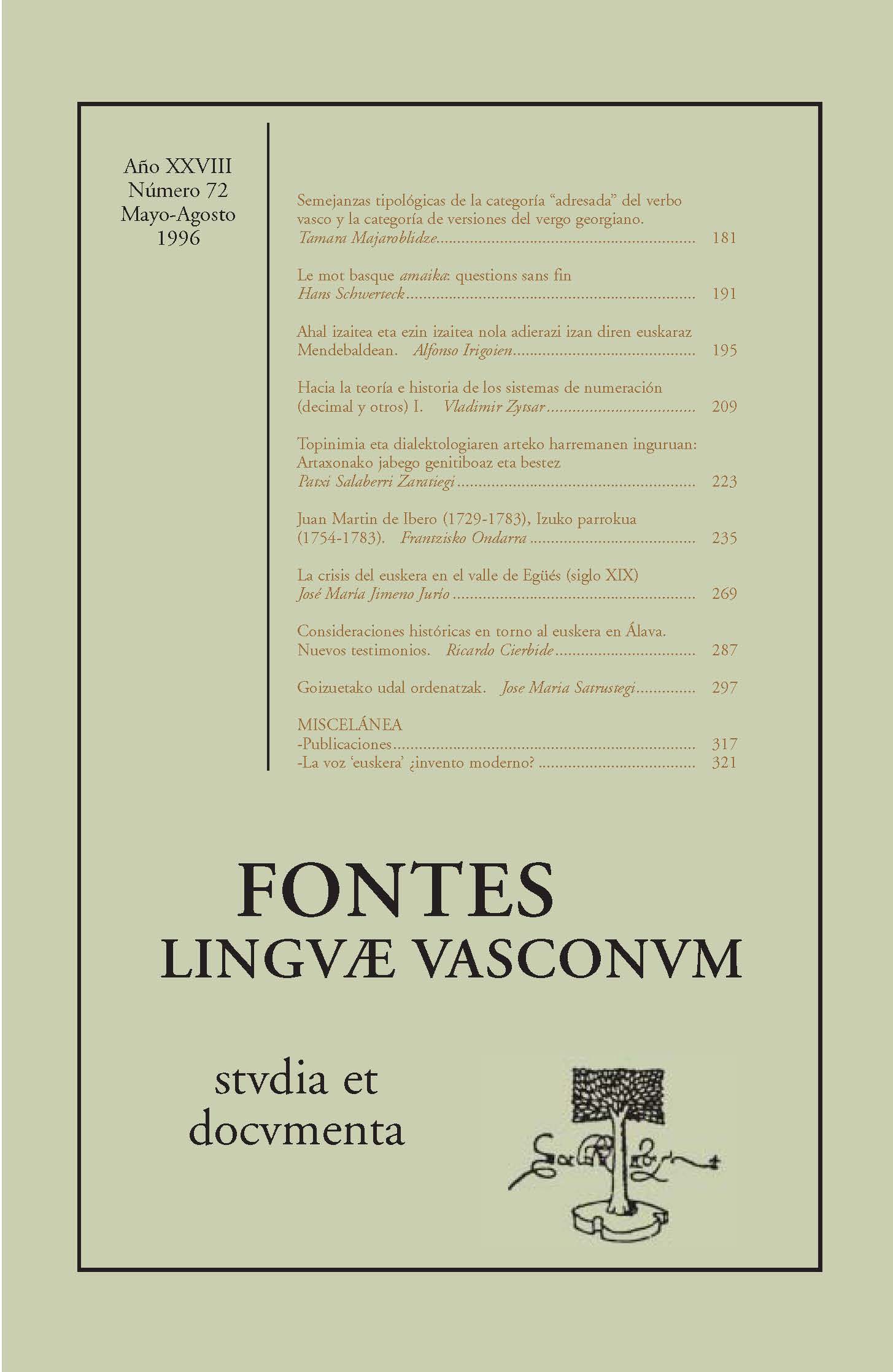Le mot basque amaika: questions sans fin
Resumen
La mayoría de los lingüistas que han intentado explicar el origen de la palabra amaika “once” suponen que en un principio existía una palabra autónoma *ika (o *eka) cuyo significado era “uno” y que la misma proviene de una cultura extraña. No obstante es más probable que tenga su origen en su propio idioma, es decir de *ama + egi + -a (=”eso-mas que-diez).
Estadísticas
Referencias
M. AGUD/A. TOVAR, Diccionario etimológico vasco, t. 1, San Sebastián 1989.
I. B. BOCHOROSHVILI, "El numeral vasco hamaika'11", FLV, 61 (1992), 395-399.
W. GIESE, "Die baskischen Zahlen", RIEV XIX (1928), 564-585.
L. MICHELENA, Fonética Histórica Vasca, San Sebastián, 1977.
F. J. OROZ ARIZCUREN, "Dos inscripciones metrológicas ibéricas", FLV 33 (1977), 423-444.
F.A. POTT, Die Sprachverschiedenheit in Europa an den Zahlen nachgewiesen, sowie die quinäre und vigesimale Zählmethode, Halle 1868.
H. SCHWERTECK, "Une étymologie du mot basque bildots", FLV 66 (1994), 307-310.
J. SILES, Léxico de inscripciones ibéricas, Madrid 1985.
A. TOVAR, "Esp. amarraco, vasc. amar, amai y el topónimo Amaya". Etymologica W. von Wartburg zum 70. Geburtstag, Tübingen 1958, 831-834.
Yu. Vl. ZYTSAR, "El período del precálculo y la investigación de los numerales", FLV 45 (1985), 25-29.
Yu. Vl. ZYTSAR"Sobre el vasco hamaika "11", FLV 61 (1992). 401-403.
Derechos de autor 1996 Hans Schwerteck

Esta obra está bajo licencia internacional Creative Commons Reconocimiento-NoComercial 4.0.







